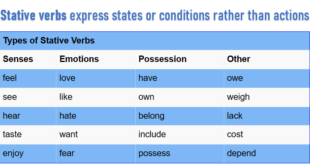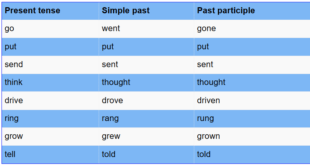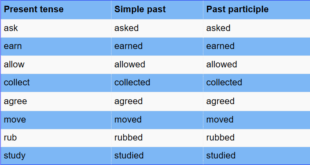Nouns![]()
Common noun
A common noun is a word that we use to name people, places, or things in general rather than specific ones (e.g., woman, city, dog, money, month, etc.).
| Common Noun | Proper Noun |
| state | Michigan |
| city | New York |
| company | Samsung, Sony |
| month | February |
| ocean | Pacific Ocean, Atlantic Ocean |
| mountain | Everest, Denali |
Common nouns can be:
- Countable: man/men, tree/trees, a dog/two dogs, two cars, three years
- Uncountable: air, gas, information, milk, snow, equipment, education
- Collective: bunch, group, team, family, herd, flock, army
- Concrete: rainbow, pen, sweetness, noise, scent
- Abstract: pain, peace, love, beauty, opportunity, friendship, life
- Verbal: meeting, swimming, smoking, arrival, decision, happiness, flight, attack
- Gender-specific: man/woman, husband/wife, king/queen, bull/cow, horse/mare, fox/vixen
A proper noun is a word that we use to name a particular person, place, or thing and always starts with a capital letter (e.g., John, New York, October). A concrete noun is a word that we use to name things we can see, touch, taste, hear, or smell. Concrete nouns can be: An abstract noun is a word that we use to name things we cannot see, touch, taste, hear, or smell (e.g., pain, peace, love, beauty, opportunity, friendship, life). Different types of abstract nouns A countable noun is a word that we use to name things we can count and has a singular and plural form (e.g., man/men, tree/trees, a dog/two dogs, two cars, three years). Words that you should use only with countable nouns. “a/an, few, a few, fewer, many, several, a number of” (e.g., a boy, a few days, many children, several books) Words that you can use with countable and uncountable nouns. “Some, any, enough, a lot of” (e.g., some books – some milk, any spoons – any information, enough apples – enough grape juice) An uncountable noun is a word that we use to name things we cannot count, and it is always singular. Words that you should use only with uncountable nouns. “Much, little, less, least, an amount of” (e.g., much time, a little milk, eat less) Words that you can use with countable and uncountable nouns. “Some, any, enough, a lot of” (e.g., some books – some milk, any spoons – any information, enough apples – enough grape juice) A singular noun is a word that we use to name one person, place, thing, or idea. Use “a” before words beginning with consonants. Use “an” before words beginning with vowels (a, e, i, o, u). Use a (not an) before words pronounced with a consonant sound. Use an (not a) before words pronounced with a vowel sound. A plural noun is a word that we name more than one person, place, thing, or idea. Most singular nouns change to plural by adding “s” to the end of them. A singular noun ends in s, ss, x, ch, sh, or z; add es to make it plural. A singular noun ends in a vowel, and then -y add an s to make it plural. A singular noun ends in a consonant, and then -y change y to i and add es to make it plural. Some nouns don’t follow a specific rule, but the word changes form. Some nouns have the same spelling as their singular form. Some nouns only have a plural form. A collective noun is a word that we use to name a group of people, animals, or things (e.g., bunch, collection, team, family, herd, flock). Use a singular verb when you consider the members of the group as one unit. Use a plural verb when you consider the members of the group as individuals. Note: Collective nouns are always singular in American English. A compound noun is a noun we make by putting two or more words together to act as one noun (e.g., toothpaste, teapot, backpack, policeman, bus stop). Some common ways to form compound nouns. A possessive noun is a noun that shows ownership or possession (e.g., Paul’s book, a car’s engine, kids’ room, a cat’s dish, a computer’s monitor, the sun’s rays, a tree’s trunk). Jim’s house: (Jim’s = possessive noun), (house = object of possession) Dog’s tail: (dog’s = possessive noun), (tail = object of possession) Add an apostrophe + s at the end of a singular noun to make it possessive. Add an apostrophe + s at the end of a plural noun not ending in “s” to make it possessive. Add an apostrophe at the end of a plural noun ending in “s” to make it possessive. Three days’ wages cars’ engines parrots’ cages leaves’ color Proper noun
Common Noun
Proper Noun
state
Michigan
city
New York
company
Samsung, Sony
month
February
ocean
Pacific Ocean, Atlantic Ocean
mountain
Everest, Denali
Concrete noun
Abstract noun
Feelings
pleasure, fear, pain, stress, satisfaction, sympathy
Emotions
joy, love, hate, happiness, sadness, anger
States
freedom, luxury, peace, chaos
Qualities
goodness, intelligence, patience, honesty, beauty
Concepts
belief, deceit, ego, liberty, culture, trust
Events
birthday, future, childhood, past, death
Countable noun
Singular
plural
a man
two men
a dog
three dogs
a pen
four pens
a room
five rooms
a foot
two feet
Uncountable noun
Singular noun
Plural noun
Collective noun
Compound noun
Possessive noun


